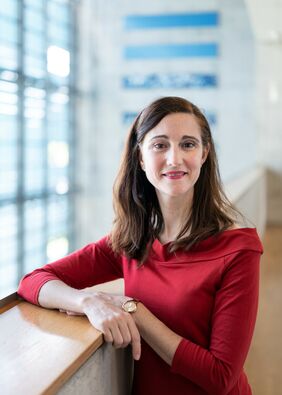Important notice: Unfortunately, the colloquium cannot take place. A new appointment is following soon. |
Jena. In vitro 3D cultures are emerging as novel systems to study tissue development, organogenesis and stem cell behavior ex-vivo. Meritxell Huch's research group "Tissue regeneration and its deregulation in disease" has developed organoid cultures from healthy and diseased, human and mouse, adult and embryonic tissues for a range of organs including stomach, liver and pancreas. These have allowed, for the first time, the long-term expansion of adult (stomach, liver and pancreas) and embryonic (liver) tissues into 3D-epithelial structures.
The researchers refer to these 3D epithelial structures as organoids because they:
- are self-assembling and can be clonally expanded,
- resemble the corresponding original tissues and
- allow the study of some aspects of tissue physiology in a dish.
In her talk, Meritxell Huch will present her group's liver organoid work and summarize their findings on how this culture system is amenable for the study of adult tissue regeneration and disease across different biological scales.
At the cellular scale, the scientists recently found that heterotypic cellular interactions between stromal and epithelial cells dictate the behavior of the liver epithelia, reconciling the apparent dichotomy between a pro-regenerative and a pro-quiescent stromal niche. At the molecular scale, they discovered that a transient, genome-wide remodeling of the cells’ epigenome (DNA methylome/hydroxymethylome) licenses adult differentiated liver cells to reprogram into bi-potent liver progenitors, both during organoid initiation and in vivo, following tissue damage. Interestingly, the unpublished results of the research group using patient-derived liver cancer organoids indicate that similar molecular mechanisms could be in place during human cancer progression and relapse. The results of Huch's team indicate that adult tissue derived organoid cultures represent novel, reductionist in vitro models, that enable gaining mechanistic understanding of basic biological principles of tissue regeneration and cancer across scales.
Information about Meritxell Huch, Ph.D:
at the , Dresden
| Title of Talk: | Tissue derived organoid models and their biomedical applications |
| When: | Thursday, March 14, 2024, 3:00 pm |
| Where: | Seminar room “Nucleus”, main building (FLI 1), Beutenbergstraße 11, Jena |
| Host: | Christoph Englert (Group leader Molecular Genetics) |
The colloquium will be a hybrid event. Details for accessing the session will be provided before the colloquium takes place. For external guests: Please contact Ivonne.Roeppnack-Jahnke@leibniz-fli.de for details.









